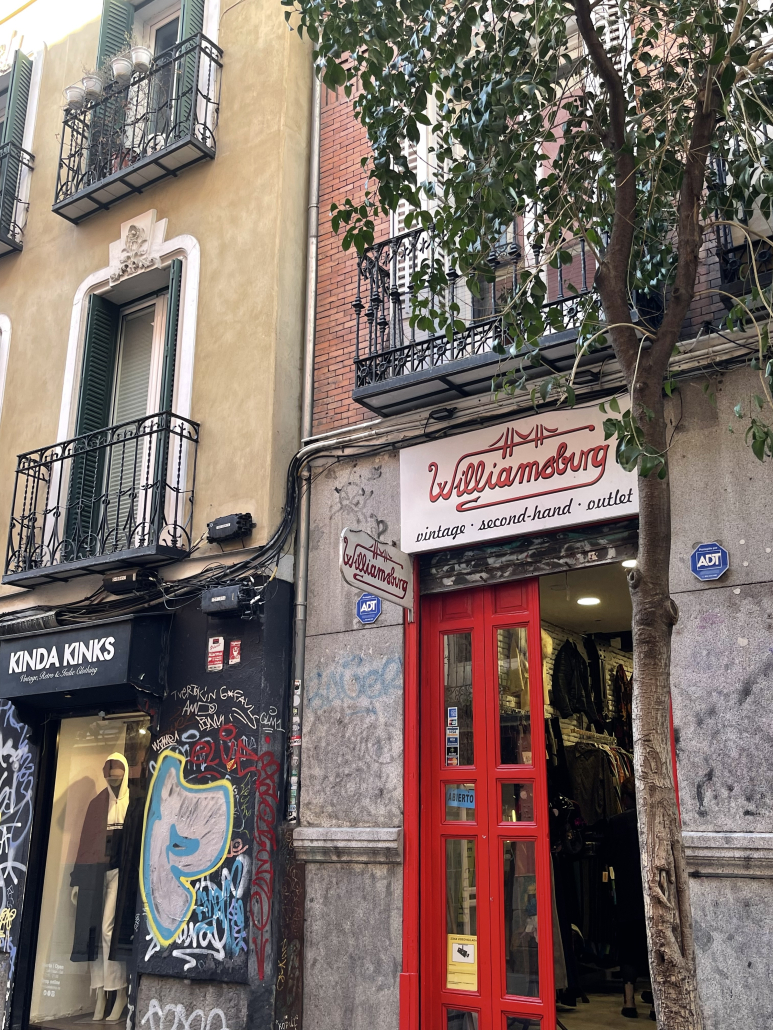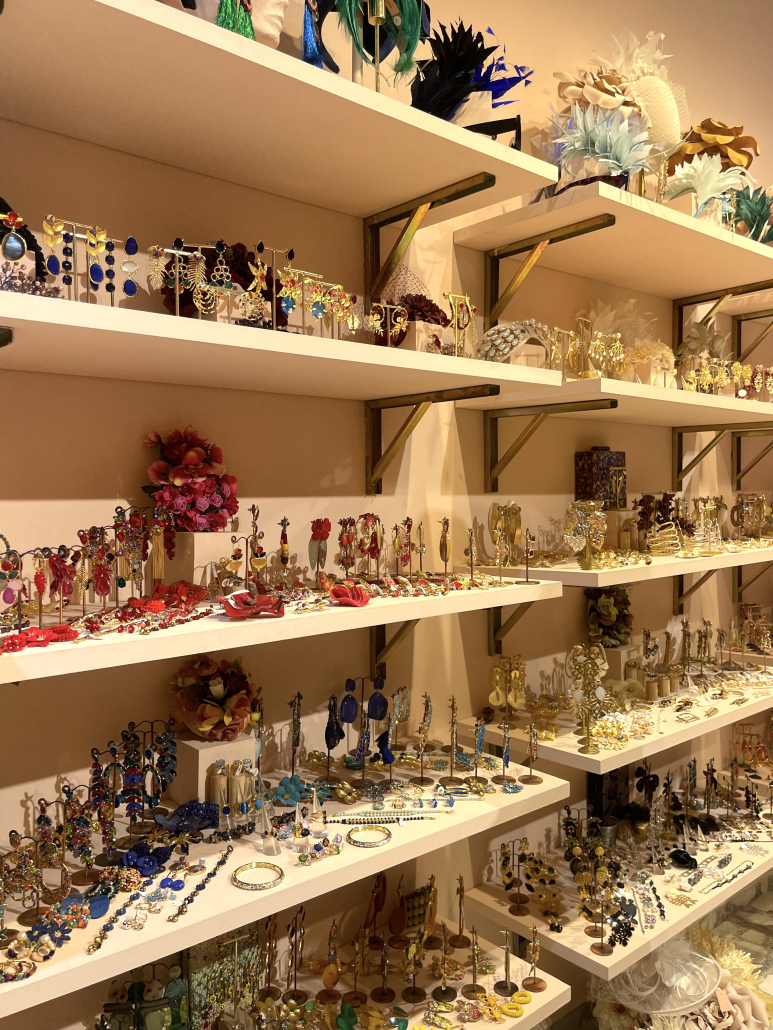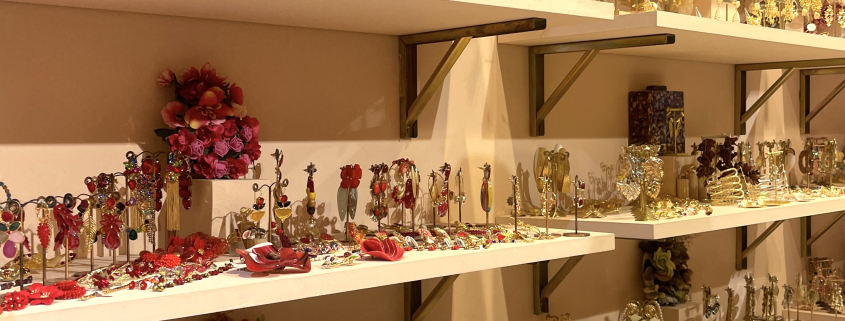That’s Fashion Sweetie: Why should you shop?

Welcome back to school, Trojans! I just had a fantastic time in Spain thrifting and eating my heart out, but I will admit that I’ve missed you all.
Upon checking the emails I’ve missed at my boarding gate, I realized I hadn’t yet responded to a message from my friend looking for help on her thesis. Asking me to discuss the role of mental health in fashion, I initially wondered what I could offer. There is the age-old — and still relevant — discussion of the fashion industry and eating disorders or the hardship of getting your foot in the door in such an exclusive industry. But after some mindless scrolling through my camera roll on the plane and seeing all the different mirror selfies I took for my parents’ approval on a shirt or a dress, I realized that fashion plays a much larger component in mental health than we give it credit for.
Of course, there are the psychological understandings of concepts such as shopping as an emotional response to hardships, stress or difficulty in life (i.e. retail therapy), as well as the idea of buyer’s remorse — negative emotions and guilt after purchasing items on impulse — especially when the item is out of a reasonable budget or price point.
There are also mentally taxing days where maybe I woke up on the wrong side of the bed: I’m breaking out, my hair isn’t falling quite right and I feel bloated from yesterday’s dinner. When trying on different clothes and seeing that they don’t fit the way they usually do or the way they look in my mind, my day immediately turns from bad to worse as I feel — unfortunately — ugly and undesirable, even to myself.
Still, just as clothes can break you down, they can lift you up. Nothing feels more satisfying than the little victories of shopping when you find that one item you’ve been searching for months for or when you grab the last item in your size. And, when you find a piece that hugs and accentuates every part that you love about yourself, you feel like the most radiant person on Earth, internally and externally.
However, I realize that this is just my personal experience. I have given clothes, fashion and shopping an ability to affect myself because I am heavily materialistic. While I used to be
ashamed of this, as I learned and appreciated fashion more, I understood that this materialism stems partly from my fear of loss. What a sudden turn, I know, but bear with me.
I am extremely fond of clothes particularly because of the role fashion has played in my life, how it’s represented different stages of it and my continuously growing love for the industry. I take this same approach to other goods too, like photos and books; I want to remember not just what the item was, but also what I was feeling at the time, what I was experiencing, who I was with.

Shopping, as studied extensively in psychology, is closely tied to how we feel about ourselves, as well as our desire to own physical possessions.(Hadyn Phillips | Daily Trojan)
But beyond this emotional role I have given to clothes, as I understand that for many, clothes are just garments and fabric, constructed into body-covering shapes, why do I allow fashion and shopping to have such an immense impact on me and my psyche? I am fully aware of the transactional relationship between brands and myself, and that while the brand relies on customer loyalty, it still feels like I’m giving (just) a little more.
It’s odd because if someone described this up-and-down relationship to me using people, I would question the health of that relationship. So, then, what even is the point of shopping past utilitarian purpose? Is it just the privilege to be able to say you own a piece from the brand? Or is it to introduce additional variables into the equation of daily decision-making options? Or is it because humans feel the desire to legitimize their existence through having an abundance of material goods to say, “Look! I own this! I am real! I am a person on Earth that exists and has memories and friends and a purpose!”
I believe it is a concoction of all and none at the same time. Instead, they balance each other out into a net zero, with a fluctuating plus-minus factor of one. If clothes are able to give and get so much from us, the relationship becomes balanced as we get rid of pieces we hate and fawn over pieces we love. On those days where clothes are our enemy, the relationship falls heavier on the negative spectrum, resulting in -1, while the opposite results in a +1 sum of the day. But when charting this over time, I believe we all end up at a zero sum average.
What makes this separate from just another thing that humans must endure in life is exactly that — the human element. Humans, while capable of being evil and cruel, can also be full of optimism, creativity, abundance and love. Humans have an incredible ability to give purpose to things on a grand, world-wide scale and in their personal lives. If you think about it, it’s spectacular: Just as every story has three sides — A, B and the objective truth — every shoe, pasta dish and bouquet of flowers can have infinite interpretations.
Ultimately, I believe it boils down to a quote from one of my favorite book-turned-movies, “He’s Just Not That Into You” (2009): “I may dissect each little thing and put myself out there so much but at least that means that I still care.”
To care is such a wonderful thing, and I’d rather go about my life caring, appreciating and celebrating than to objectively view things as they are. After all, we only die once — why not make the most of life?
Hadyn Phillips is a sophomore writing about fashion in the 21st century, specifically spotlighting new trends and popular controversy. Her column, “That’s Fashion, Sweetie,” runs every Tuesday.

